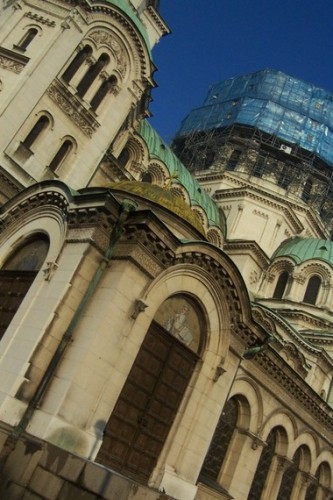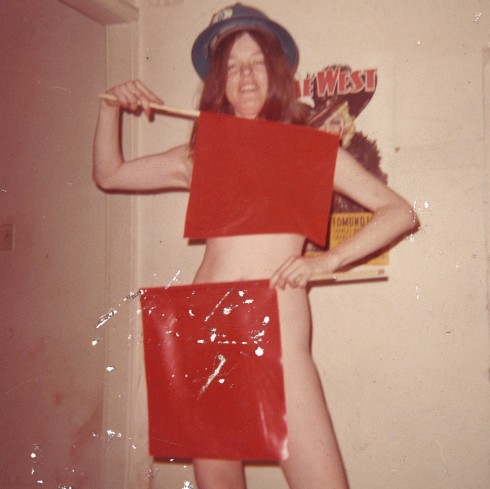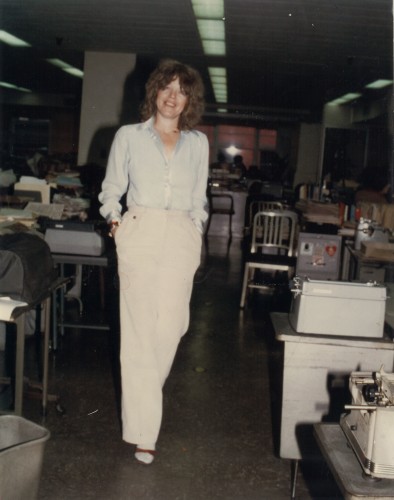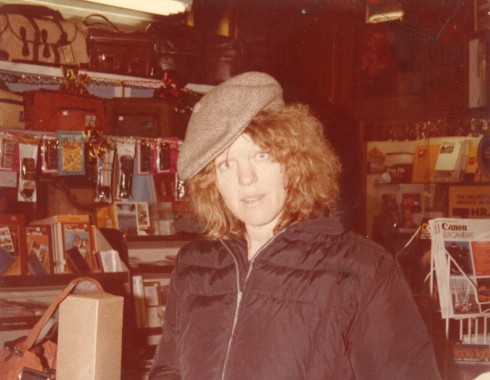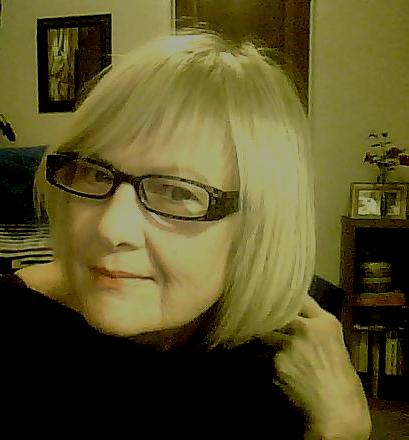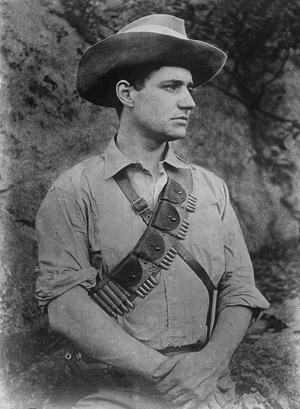Raining On The Ukrainian Parade
Alexander Nevesky Cathedral In Sofia, Bulgaria
By LIONEL ROLFE
I hate to rain on anyone’s parade, but let’s get off this thing about poor picked on Ukraine standing up for freedom against the big evil Russians.
Would you feel sympathy if poor picked on Texas decided they wanted to secede? Maybe that might not be an entirely bad idea, given the reprehensible politics of the place. But still we’d probably object.
My best insight into Ukraine a couple or so years back when I stood in front of the National Library in Sofia, the capital of Bulgaria. I was fascinated by the statue in front of two brothers, Saint Cyril and Saint Methodius, credited with inventing the Cyrillic alphabet which is used not only in Bulgaria but in Russia and a lot of other places. Read more
Mary Reinholz “Exit from Eden”: The Saga Of A Female Fugitive Continues
The author in photos from the era she’s writing about
BY MARY REINHOLZ
CHAPTER 8
The white princess phone was ringing when I got back to Phoebe Whistlethorpe’s East Village flat at noon. It was my hostess on the line, calling from the green fields of Connecticut to say she’d be returning to New York in two days and asking me to pay the telephone bill “or those robots from Ma Bell will turn off service before I get home.”
She sounded breathless and more scattered than usual. Then she dropped a shit bomb that could put me at risk for a murder rap and serious jail time for killing Jed Scott while he was choking me to death in Arkansas.
“And oh, by the way, Joanna–sorry, I mean Cassandra,” she went on in a syrupy voice. “I met this divine man at a jousting match who used to work at a gallery in Pasadena…he remembers you from the Los Angeles Free Press as a sexy red headed reporter who covered the Renaissance Faire in Simi Valley. This is really funny– he said you tried to get him to pretend he was Robin Hood and to shoot arrows at a Sheriff’s Deputy. Did you really do that? I love it! Anyway, I told him, ‘Oh no, she’s not crazy like that any more. She dyed her hair this mousy brown and she’s very much the straight laced working girl in New York.’ I shouldn’t have said all that, should I?” Read more
A VETERAN BOOKMAN’S ROAD TRIP CONFESSIONS
Red Dog Saloon, Juneau, Alaska
By Bob Vickrey
When I walked through the swinging doors of the Red Dog Saloon, everyone in the dimly lit bar seemed to stop what they were doing to check out the stranger who had entered their private domain.
I found an unoccupied seat at the crowded bar and ordered a Kodiak Ale on tap. The bartender studied me before asking where I was from. Back then, the citizens of Juneau could easily recognize a stranger in town. This was in an era when Juneau was still a relatively isolated place, and long before the Princess Cruise ship invasion brought thousands of international tourists to its shores. Read more
Is My Mother Calling Me?
By Beatlick Pamela Hirst
Before Daddy died, I can remember Mama at the ironing board, ironing sheets. This was before air conditioning and the white nylon sheers puffed wisps of warm atmosphere through the bedroom window, which was dim to my eyes, after leaving the dazzle of June daylight.
I could smell the new steam iron for which she bought special distilled water. No tap water. Mama was a nurse, she made hospital corners and she had a way of turning down the sheets and fluffing up the pillows that made my bed look so inviting. I just wanted to jump in, asked if I could and she generously nodded. Read more
Gaza without Cement!! For How Long Will This Last?
By Mohammad Arafat
Our Gaza Correspondent
While walking west through the streets and lanes of Gaza to my university I noted something that was out of the usual. I noted that many of the homes were only partially constructed. Stanchions were there supporting the unfinished ceilings because there was no cement to finish them.
Gaza has become a place without cement. You don’t stop to notice such things until you realize something important is missing. At the entrance of one building, there was a guard I know named Abu-Osama. He had made a chair to sit on from two stones. He was boiling unsweetened coffee in a small kettle.
“Hello Abu-Osama,” I said.
“Hello Mr. Mohammad, you are so welcome,” he said. I took a seat, also made of two stones, beside him. Read more
Fritz Joubert Duquesne: Boer Avenger, German Spy, Munchausen Fantasist
“Col. Fritz du Quesne, a fugitive from justice, is wanted by His Majesty’s government for trial on the following charges: Murder on the high seas; the sinking and burning of British ships; the burning of military stores, warehouses, coaling stations, conspiracy, and the falsification of Admiralty documents.” He carried on hostile operations against the British government in various parts of the world under the following names: Fred, Fredericks, Capt. Claude Staughton, Col. Bezan, von Ricthofen, Piet Niacud, etc. His correct and full name is Fritz Joubert Marquis du Quesne. Prior to the war he was known as Capt. Fritz du Quesne, a big game hunter, author, explorer and lecturer.
-London Daily Mail, May 27, 1919
He is one of the most desperate and daring criminals we have ever had here.
His adventures read like a romance.
– Abraham I. Rorke, New York City Assistant District Attorney,
New York Evening Post, August 21, 1920.
On January 2, 1942, 33 members of a Nazi spy ring headed by Frederick Joubert Duquesne were sentenced to serve a total of over 300 years in prison. They were brought to justice after a lengthy espionage investigation by the FBI.
-Federal Bureau of Investigation, Duquesne Spy Ring, March 12, 1985
- Captain Fritz Joubert Duquesne, Boar soldier, circa 1900
Leslie Evans
Frederick “Fritz” Joubert Duquesne (1877-1956) was a South African Boer who led an astonishing life on both sides of the law. Officer in the Boer army in the war with England, many times an escaped prisoner, pimp, newspaper reporter, foreign correspondent, novelist, spy and saboteur in South America where he blew up British ships during World War I, adviser on big game hunting to Theodore Roosevelt, publicist for Joseph Kennedy’s movie business. He feigned paralysis for five months to avoid deportation to England where he faced execution for the deaths of British seamen. And finally, he was the best known member of the largest Nazi spy ring broken up by the FBI during World War II.
Beyond his real exploits, Duquesne lived under some thirty aliases. He invented and reinvented his past at will, claiming to have been the greatest swordsman in Europe, attaching his ancestry to this or that aristocratic clan that momentarily appealed to him, granting himself military titles and medals, and producing endless accounts of battles, some of which he actually took part in. His most famous claim was to have guided a German submarine to sink the HMS Hampshire in 1916 at the height of World War I, killing Field Marshal Herbert Kitchener, Britain’s Secretary of State for War and the head of Britain’s armed forces. Read more
The Future Governor From Newhall, California
By LIONEL ROLFE
The obituary notice of a four-term California assemblyman who died at 86 the other day brought back memories of an odd and jarring time in my youth when he hired me to write a philosophy because he was then an aspiring politician.
When I first met Jim Keysor in the late ‘60s, I was a reporter at the Newhall Signal. On hot summer days, the president of the Newhall Chamber of Commerce would stroll across the patio to gab with us in our modest cityroom.
Jim Keysor was the chamber’s president, but he struck me a little different than the usual kind who becomes president of the chamber of commerce. This isn’t to say he was a fellow member of the counter culture. He wasn’t. He was a Mormon, from a prominent Mormon family, and he was a Democrat of sorts. Read more
Honey takes the train to Los Angeles
NOTES FROM ABOVE GROUND
By Honey van Blossom
(Honey is a Belgian Marxist former strip-tease artiste)
In the first car of the train from Martinez light comes through the window in front as well as through the windows on the sides. If I stand, I see the landscape rushing towards us.
The daylight is watery — as I imagine light is in the Netherlands. The land is flat around the Delta and in the Central Valley. There is so much sky and so little land seen from the train windows that it seems we must be traveling underwater. Clouds are bruised from their weight of water, and the wind pushes them into changing shapes. One is a polar Teddy bear, and he occupies most of my window.
A man I haven’t met sends me a poem, which I read on my tablet. He once wrote that he was a lesbian and in a relationship with another woman, but he is a man married to a woman. His name is Ed Underhill. I have never heard anyone call him “Ed.” Perhaps because “Ed” is too short although Americans always shorten names even the names of foreigners, but if his name is too short, he could be Edward. He writes: Read more

